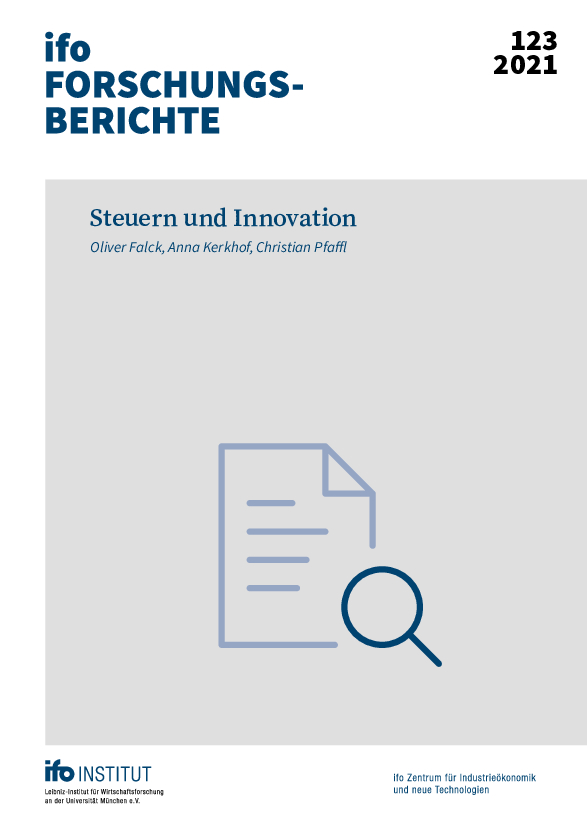Taxation and Innovation
ifo Institut, München, 2021
ifo Forschungsberichte / 123

Innovations form the basis for technological progress and have a decisive influence on the future viability of economies. However, positive externalities as well as the inherent risk of investments in research and development (R&D) lead to private-sector investments in R&D being below the efficient level in the market equilibrium. The state can compensate for this market failure by providing incentives for innovation. Various tax policy instruments are available for this purpose: A distinction is made between targeted R&D tax subsidies (input- or output-based) and general tax subsidies via corporate and income taxation. In an evidence report with meta-analysis, the existing literature on the effect of tax subsidies for R&D was systematically evaluated. The analysis paints a predominantly positive picture with regard to the desired effectiveness of R&D tax promotion. In particular, targeted, input-based R&D tax subsidies and general support through corporate taxes show a positive effect on innovations and R&D activities in private-sector companies.